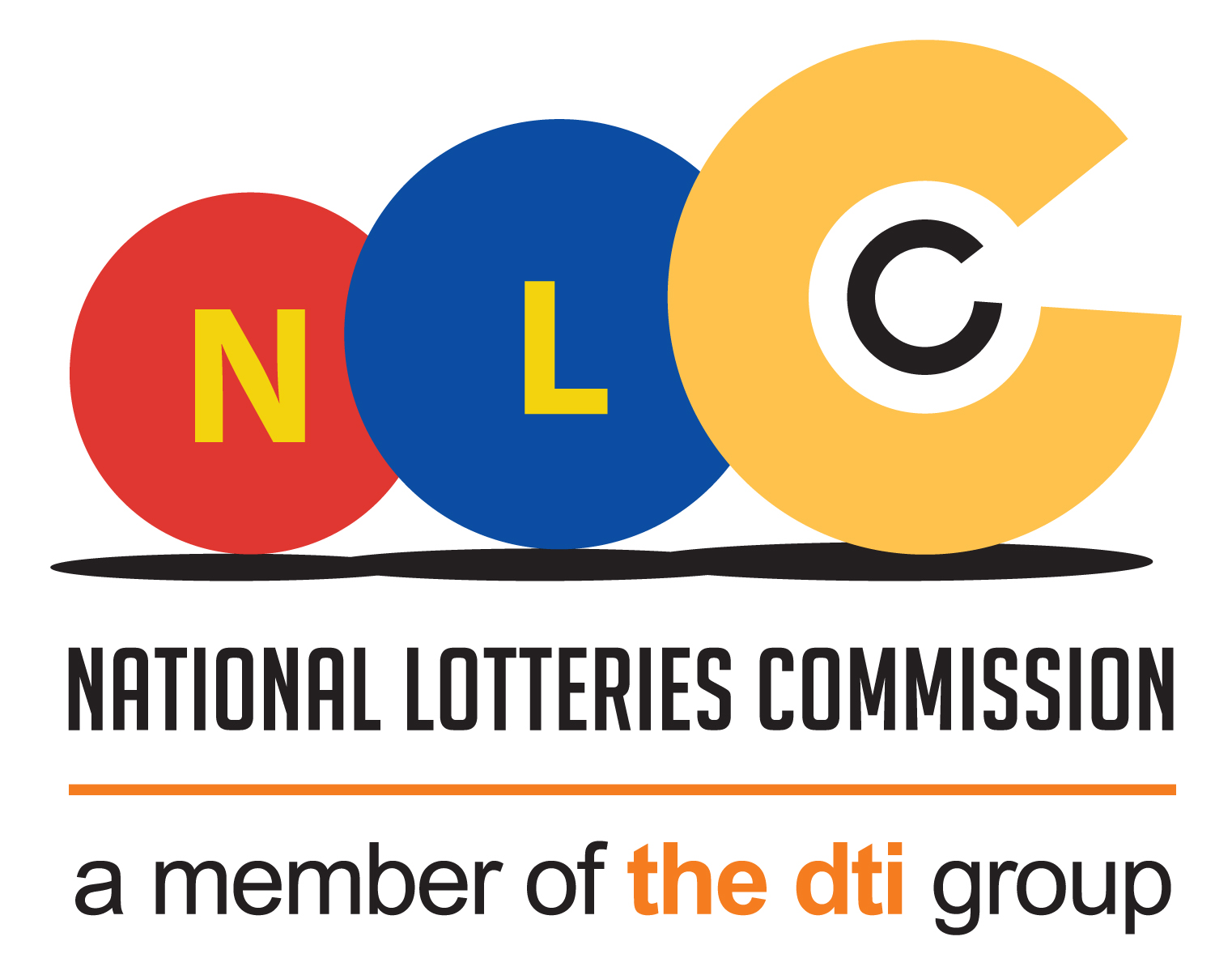According to the National Income Dynamics Study – Coronavirus Rapid Mobile Survey (NIDS-CRAM), women accounted for approximately 67% of the job losses in South Africa between February and April 2020 as a result of the COVID-19 pandemic.
ADVERTORIAL: NLC-funded projects continue to build hope in these communities.
FUNDING FOR IMPACT
KURUMAN-NORTHERN CAPE,
Bomme, Ke Nako!
‘Even though the organisation’s aim is to assist women, we also play a role in creating employment for the youth’.
IN KURUMAN, Northern Cape a large number of residents live in abject poverty, and the most affected group is unemployed women, who are faced with the challenge of raising children in those circumstances.
Bomme Ke Nako, a women-led non-profit organisation (NPO) based in Vergenoeg near Kuruman, is one of the entities that plays a vital role in assisting women with skills development and also creates jobs for them so that they can feed their families.
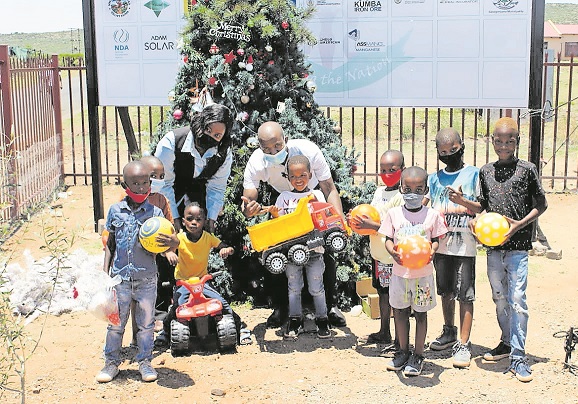
Through the help of the National Lotteries Commission (NLC), which injected funds into their skills development and poverty eradication projects, the organisation has managed to expand its food garden projects and created full-time jobs for six people, and more than 21 temporary jobs for the locals.
“After realising that the women and children in our area were suffering due to the high unemployment rate in the country, we decided to fight the situation by forming this organisation in 2005.
“Today we have a huge farm in which we plant different vegetables that we sell to local small businesses and also to the community, to generate income to pay stipends to the people who work at the farms, as well as those working in our centre.
“Apart from the huge farm that we have, now we also have the other five small farms. “Even though the organisation’s aim is to assist women, we also play a role in creating employment for the youth, as there are many young men and young women who are working part-time,” said Keseledile Lekgetho, founder of the NPO.
The NLC acts as a catalyst for eradicating poverty and reducing inequality in South Africa, channeling 47% of its annual budget for distribution toward the Charities Sector.
Lekgetho said other initiatives that the organisation implemented include the sewing project in which they train young women to design school uniforms, graduation gowns and matric dance dresses, and sell them to local schools and individuals to raise funds to sustain the project.
According to her, some school-going children visit the centre to get their daily meals and toys. She has thanked the NLC for funding their poverty eradication projects. “We would like to thank the NLC for funding us during the time when we needed help the most. We previously got support from individuals and local companies, but the NLC’s assistance came when our organisation was struggling financially. I would say they assisted the entire community because without them, we would have struggled to implement some of the projects,” said Lekgetho.
Sana Phutiyagae, 53, is one of the women who secured full-time employment at the organisation. “Things were not going well for me and I was invited to come and join other women who are working on the poverty eradication project,” said Phuthiyagae.
“I am diabetic, so working here also assists me to deal with my health condition, because to me it is like exercise. I enjoy working with these women because we also share pieces of advice on how to use money wisely.”
The organisation was started by 10 women in 2005 where they used to buy chicken for R17 each and sold it for R20, keeping the profit to grow the organisation. Today, the membership has grown to 20.
In 2009, they won the Community Builder of the Year award, on top of other local and international awards.
FUNDING FOR IMPACT
NAMAKGALE, PHALABORWA, LIMPOPO
‘Chen puts Limpopo women’s destinies in their own hands’
UNEMPLOYMENT has been on an upward trend in South Africa over the past decade.
This scourge affects mostly women (particularly unskilled) and youth. It has become increasingly important for women to come together to empower themselves and break free from the chains of oppression.
Chen Woman Empowerment, a non-profit organisation (NPO), based in Namakgale, Phalaborwa in Limpopo, was founded in with the aim of raising the standard of living for women in poor communities across the province.
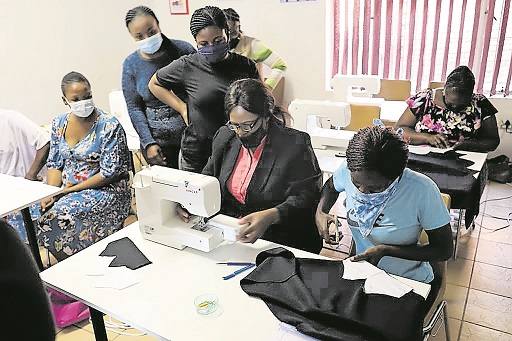
Chen provides women with skills that will equip them with income-generating, sometimes underrated skills such as sewing, and project management.
“We saw that the opportunities are vast, they can sew curtains, clothes, school uniforms to make money,” says Lindile Mathebula, the NPO’s project manager.
The NPO received funding from the National Lotteries Commission (NLC) that covered equipment, personnel salaries and training. Mathebula says funding from the NLC proved vital, and that the NPO’s database now has 487 unemployed youth and single mothers.
And the number keeps rising. “Even though we still have some challenges with space and limited resources, we still thank God for the NLC for the funding because the tailoring project couldn’t have started,” says Mathebula.
“With the funding, we are able to open a small office, buy machines and materials and the project has started but the issue is, as we grow and people see our potential, they come in large numbers to register.
“That is why we have an issue with space and resources. So, we are appealing to the NLC to consider funding us again so that we can grow the project.”
Mathebula adds that desperate young women and unskilled young mothers who are victims of poverty end up in unplanned marriages, prostitution, and crime so that they can survive. “It is important as women to share innovative and creative ideas so that they can uplift their lives for the better. Women who have lost their income due to the coronavirus lockdowns will now be equipped with skills to create employment for themselves through the tailoring project.”
Since the NLC funding, the NPO has seen a flood of applications from people who will now receive training for the next 12 months.
“We were also able to purchase land so that we can build a facility. We have also received a contract at a local mine to supply them with face masks and this means we will be able to accommodate more beneficiaries.”
“Our plans include opening our own shop where we will sell the clothes that we make. We want to be the biggest supplier of clothes in the country. “We also plan to venture into baking, and we are happy that the Limpopo Economic Development Agency has come on board to assist us with business management skills and marketing skills.
Mathebula adds that the NPO is in a process of registering with the Fibre Processing and Manufacturing Sector Education and Training Authority so that their qualifications can be accredited.
WE ARE GENERATION EQUALITY
REALISING WOMEN’S RIGHTS FOR AN EQUAL FUTURE
63% percentage of jobs that benefitted women from the total of 8,959 jobs were created /retained from NLC funding in the 2nd half of FY 2020/21.
“When you empower a woman, you empower a generation”
82% the percentage of women who benefitted from NLC funded skills development programmes.
As part of impact monitoring, the NLC’s Monitoring & Evaluation Unit tracked the enrolments in Skills Development Programmes for staff of NLC funded projects. There were total of 929 enrolments in skills development initiatives in the second half of the year, and 761 of those were women.
The skills gained will continue to serve the communities in which these women live.
FUNDING FOR IMPACT
NWAMITWA VILLAGE, LIMPOPO
‘Sisters doing it for themselves in male-dominated sport’
THE NATIONAL Lotteries Commission (NLC) investment into sports development from grassroots level contributes to building a healthy, winning nation.
A significant portion over the years has gone to women-run sports entities which ultimately provide the development of women’s sporting codes.
One such organisation that has benefited from the NLC’s generosity is Sisters Football Club, a non-profit organisation (NPO) based in Nwamitwa Village in Limpopo.
Monica Mathonsi founded the NPO in 2008 with the aim of promoting and developing teenagers’ interest in sports while keeping them away from the streets.
In 2019, the NLC funded the NPO in the form of sport equipment, apparel and transport costs. Mathonsi says the funding helped motivate the young girls who dream of playing for Banyana Banyana, SA women’s football national side.
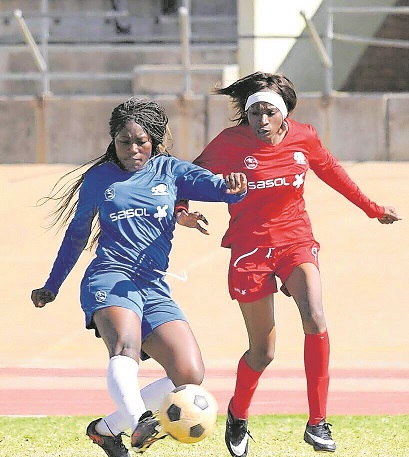
“We really appreciate the money the NLC funded us with, we now have travelling attire and equipment. Apart from playing soccer, the NPO also benefits women by buying sanitary towels for them and giving sports bursaries to registered players,” says Mathonsi.
“Running a club without a club house is a serious challenge, as well as a lack of support from the community, playing a league with no club sponsor and having many people and businesses who have no interest in funding or donating for women football.”
Mathonsi says when the football club was established 14 years ago, it only had a few players and a little support from the community, but now the club is registered with the South African Football Association (SAFA).
“It wasn’t easy when we started because in most cases, some people think soccer is for men and not women. We didn’t get enough support from the community but that has since changed, we are now developed, and we are counted among the best female teams in the province”.
The club was promoted from Absa Women’s League to Sasol first division women’s league at the end of the 2011/2012 season.
Mathonsi adds that she is happy with their growth, adding that the club now has 47 members who include 35 players and 12 executive members.
“We have achieved so much as a team, we got promoted from Absa regional league to Sasol provincial league. “We became champions for greater Tzaneen Municipality Mayor’s Cup in 2017 and 2019. We also became the 2019 women champions of Mopani district,” a proud Mathonsi recollects.
We also became the 2019 women champions of Mopani district,” a proud Mathonsi recollects. “Every season, more than five players are selected to provincial Safa and school ladies team for under 15, under 17 and under 19, and our biggest highlight was when we received the NLC funding.”
“Funding in the Sport and Recreation Sector of the NLC aims to develop sports and recreational facilities in rural areas, and enable more people to become involved, while contributing to the development of these fields and creating employment for the youth”.
FUNDING FOR IMPACT
CAPE TOWN, WESTERN CAPE
‘A beautiful tapestry of hope’
THE NATIONAL Lotteries Commission (NLC) has through its grants managed to support numerous non-profit organisations (NPO) with the aim of helping communities fight the scourge of gender-based violence (GBV) and many other social ills.
The Mosaic Training Services and Healing Centre for Women in Cape Town was founded in 1993 by Rolene Miller, has contributed to positive change in many people’s lives in the Western Cape, Gauteng, and Kwazulu-Natal.
As an organisation with a specific focus on preventing and reducing abuse and domestic violence, particularly for women and girls living in disadvantaged communities, Mosaic’s main objectives include increased availability and accessibility to high-quality, integrated services for survivors of abuse and domestic violence.
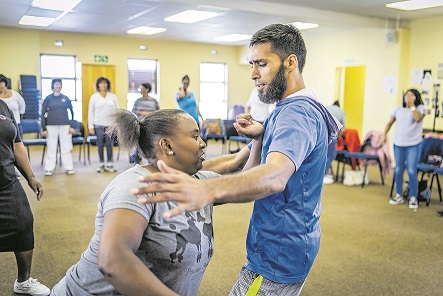
In July 1995, the NPO introduced training with women who were mostly survivors of abuse and domestic violence from targeted areas. In 2018, Mosaic celebrated 25 years of empowering and healing survivors of abuse and violence.
In 2019, they received funding from the National Lotteries Commission, directed at the NPO’s operational costs and renovations to its facility.
Mosaic executive director, advocate Tarisai Mchuchu-MacMillan, says her organisation is grateful for the support it received from the NLC.
“The NLC support structure means a lot to us to continue doing our work and pushing our programmes for us to reach as many people as possible. The funding they have given us had helped us cover operational costs and programmes activations.
This also gives us the hope that we are fully effective towards our work,” says Mchuchu-MacMillan.
“We provide prevention and response service to victims of domestic violence and gender-based violence through our court support system in three provinces, and run 24-hour care centres at Thuthuzela Care Centres in Khayelitsha, Atlantis and Worcester.
“We also have two shelters – Protea House for Women in Albertinia and Peonis House for Women in Heidelberg in the Western Cape.”
“We continue to deliver a range of social support services and projects to survivors who are mainly women and girls. “All support services are designed according to people’s needs and by community leaders and forums, are culturally appropriate and easily accessible to our people.
“We also offer a male counselling and preventative programme that includes services to men and supports Men as Partners in the healing process,” says Mchuchu-MacMillan.
She adds that based on the funding they have received, their organisation has managed to branch out of the Western Cape to reach other provinces including Gauteng and Kwazulu-Natal.
Mosaic court workers were trained to work in 16 domestic violence courts in the Cape metropolitan and surrounding rural towns, as well as Johannesburg and Pretoria domestic violence courts, and Kwa-Zulu Natal.
Based on its work, the organisation reaches more than 30 000 people each year. It aims for more.
Mchuchu-MacMillan says as their programmes expand, they believe the organisation will also expand to other provinces, and through the assistance they get from the NLC, all will be possible to get the best support system for the victims of domestic violence and GBV.
“We are hands on when it comes to providing support for our people, and the NLC funding goes a long way. Through their assistance, we can expand our operations to reach the rest of the country. “We are passionate about helping others, hence we are also glad that the NLC gives us that big boost to exercise and spread our wings to get to other communities that need our help and support.”
FUNDING FOR IMPACT
IVORY PARK, JOHANNESBURG, GAUTENG
‘Mother Nurture – Taking back the environment’
IN Ivory Park, Johannesburg an energised group of young people are advocating for environmental change and sustainability.
Get Up Women and Youth NPC was founded by Zolelwa Sohena, and works to raise awareness on environmental matters, and aims to empower women and the youth through various projects.
In its 2019/2020 financial year, Get Up received funding from the National Lotteries Commission (NLC), enabling the entity to pay for operational costs including salaries and stipends, training and development.
Board member and overseer of the organisation, Ethel Matsika, says the entity is working tirelessly to empower and encourage women and the youth to involve themselves in recycling, business empowerment projects, service delivery initiatives, and to keep the environment clean and sustainable.
She notes that the organisation is happy with the assistance from the NLC.
“The NLC come through at a crucial time when the Covid-19 pandemic was starting and destroying many lives,” says Matsika.
“As Get Up, we have saved the livelihoods of our people through this funding, and our programmes have helped many of our beneficiaries to start their own businesses, thanks to training programmes that we offer.
“The NLC funding also helped stabilise many households in the community through projects that created jobs and small businesses.”
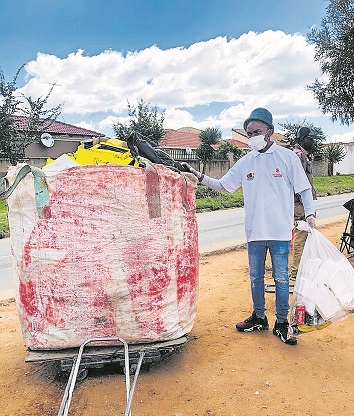
Sohena adds that the organisation acts as an economic advocate, saying it prioritises unemployed women and the youth as it strives for job creation and the eradication of poverty.
“Our work is to come up with initiatives and campaigns that raises awareness about the environment, promotion of waste management, pollution control, as well as the preservation of arts and culture.
“The role that the NLC plays in these initiatives has brought a huge impact in the lives of many people,” says Sohena.
“We create projects that generate income while cleaning our communities. We work to unite our people and always encourage community-based organisations to work together towards positive change”.
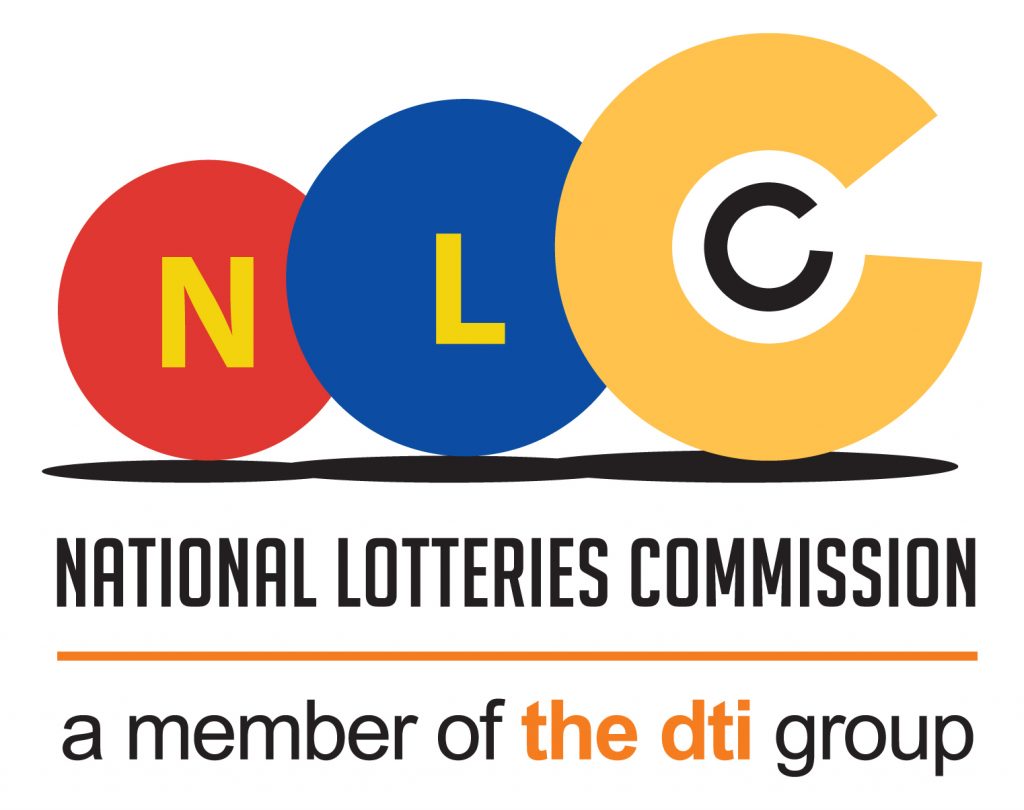
Empowered Women Empower Women.
To you who pioneer and build, break barriers
and agitate for positive change in society,
To you who lift others as you rise,
As we continue to strive toward Generation Equality,
We honour you, the women of the NLC, and the
women of South Africa for all that you are,
We honour you this Women’s Month.
We salute you everyday.

